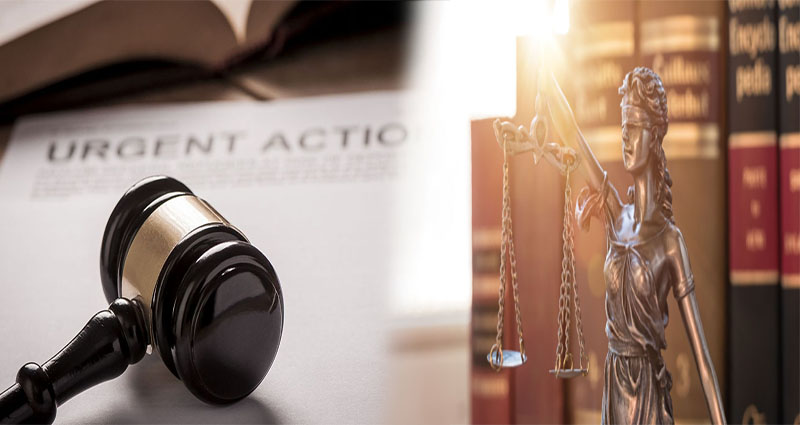The Importance of Pro Bono Services for Legal Consultations
In our society, access to justice should never be a luxury reserved for the privileged few. Unfortunately, many individuals and families face legal challenges but are unable to afford legal representation. This is where pro bono services for legal consultations play a crucial role.
What are pro bono services?
Pro bono, derived from Latin, means “for the public good.” Pro bono services refer to legal assistance provided by legal professionals, such as lawyers or paralegals, without any expectation of payment. These services are offered to individuals or organizations who cannot afford to hire legal representation.
The importance of pro bono services
- Ensuring equal access to justice: Pro bono services bridge the justice gap by enabling those who cannot afford legal representation to receive competent legal advice. This helps to level the playing field and ensure that everyone has equal access to justice, regardless of their financial circumstances.
- Promoting justice and fairness: By offering pro bono services, legal professionals contribute to the overall fairness of the justice system. Pro bono work helps to uphold the principles of justice and prevent injustice, particularly for marginalized individuals and underrepresented communities.
- Addressing unmet legal needs: Countless individuals face legal issues but lack the financial resources to seek legal advice. Pro bono services help address these unmet legal needs, assisting individuals in navigating complex legal processes and ensuring their rights are protected.
- Supporting community organizations: Pro bono legal services are not limited to individual cases. They also extend to nonprofit organizations,
Understanding Drug Charges and Cybercrimes in Criminal Law
In today’s increasingly digitized world, criminal activities have expanded beyond traditional offenses to include cybercrimes. Alongside cybercrimes, drug charges remain a pervasive issue. Understanding the legal implications and consequences of drug charges and cybercrimes is crucial for both individuals and society at large. In this article, we will explore these two distinct areas of criminal law and shed light on their intricacies.
Drug Charges
Drug charges involve the possession, manufacturing, distribution, or trafficking of controlled substances deemed illegal under federal or state laws. The severity of drug charges and associated penalties can vary greatly depending on factors such as the type and quantity of the drug involved, prior criminal history, and intent.
Types of Drug Charges
- Possession: The most common drug charge, possession refers to having illegal drugs on one’s person or within their control.
- Manufacturing: Charges related to the production, cultivation, or synthesis of illicit drugs.
- Distribution: Charges for selling, delivering, or transporting controlled substances.
- Trafficking: A more serious offense involving the transportation and sale of illegal drugs across state or national borders.
- Possession with Intent to Sell: When the circumstances surrounding drug possession indicate an intention to sell or distribute the drugs, the charge may escalate.
Legal Consequences
The legal consequences of drug charges can be severe and vary depending on the jurisdiction and the specific circumstances of the case. These consequences may include:
- Incarceration: Drug convictions can result in imprisonment, ranging from periods of months to decades, depending on the severity of the offense.
- Fines: Fines can
How to Find a Reliable Officiant in Your Area
Finding a reliable officiant is a crucial aspect of planning any wedding, commitment ceremony, or vow renewal. The officiant plays a significant role in creating a meaningful and personalized ceremony that reflects the couple’s values and beliefs. If you are searching for a reliable officiant in your area, follow these steps to ensure you find the perfect fit for your special day.
Step 1: Determine Your Ceremony Style and Preferences
Before starting your search, it is essential to have an idea of your ceremony style and preferences. Consider whether you want a religious or secular ceremony, traditional or contemporary, or if you have any specific cultural or religious requirements. Knowing your preferences will help you narrow down your options and find an officiant who aligns with your vision.
Step 2: Seek Recommendations
Ask friends, family, and colleagues for recommendations. Chances are, someone you know has recently attended a wedding where the officiant made a positive impression. Personal recommendations can be invaluable as they come from trusted sources who have experienced the officiant’s services firsthand.
Step 3: Research Online Directories and Listings
Utilize online directories and listing platforms that specifically cater to wedding services. Websites such as WeddingWire, The Knot, and Yelp have sections dedicated to officiants, complete with reviews, contact information, and pricing details. These platforms allow you to filter results based on your location and other preferences.
Step 4: Read Reviews and Check References
Once you have shortlisted a few potential officiants, thoroughly read their reviews and testimonials. Reviews … Read the rest >>>
Step-by-Step Guide for Filing Lawsuits and Motions
Filing a lawsuit or motion can be a complex and intimidating process. However, with the right information and guidance, it can become an achievable task. In this step-by-step guide, we will walk you through the key steps involved in filing lawsuits and motions.
Step 1: Understand the Basics
Before diving into the legal process, it is essential to have a basic understanding of the lawsuit and motion filing procedures. Lawsuits are formal legal actions where one party sues another in court, seeking resolution for a dispute. On the other hand, motions are requests made to the court during the litigation process, addressing specific issues or seeking a ruling.
Step 2: Determine if a Lawsuit or a Motion is Appropriate
The first step in the process is to determine whether filing a lawsuit or motion is the appropriate course of action. Consult with an attorney who specializes in the relevant area of law to evaluate your situation and advise you on the best approach.
Step 3: Gather Necessary Information and Documentation
To file a lawsuit or motion, you will need to gather all relevant information and documentation related to your case. This may include contracts, evidence, witness statements, and any other supporting materials. Having thorough documentation will strengthen your position during the legal proceedings.
Step 4: Consult with an Attorney
While it is possible to represent yourself in court, it is highly recommended to consult with an experienced attorney who can guide you throughout the process. An attorney will ensure that … Read the rest >>>
Defending Against Aggravated Assault Allegations In Tennessee: A Comprehensive Guide
Being accused of aggravated assault in Tennessee can be a daunting experience. Not only are the legal consequences severe but the social stigma and personal ramifications can also be significant. However, it’s essential to remember that an accusation does not equate to guilt, and everyone has the right to defend themselves against such allegations. In this comprehensive guide, we’ll explore the nuances of defending against aggravated assault charges in Tennessee, including understanding the law, potential defenses, and steps to take to protect your rights.
Understanding Aggravated Assault Laws In Tennessee:
In Tennessee, aggravated assault is a serious offense that involves the intentional causing of bodily injury to another person or the reckless causing of serious bodily injury. The key elements of aggravated assault Tennessee include the defendant’s intent or recklessness, the existence of bodily injury or serious bodily injury, and the identity of the victim.
According to Tennessee law, aggravated assault is a crime that comes with harsh punishments like jail time, fines, and probation. The severity of the sentence depends on things like how badly the person was hurt, whether a deadly weapon was used, and the person’s previous criminal record.
Potential Defenses Against Aggravated Assault Allegations:
Self-Defense: Self-defense is one of the most popular ways to fight aggravated assault charges. The law in Tennessee lets people use fair force to keep themselves safe from harm. You might be able to get the charges dropped or lowered if you can show that you acted in self-defense and that what … Read the rest >>>











